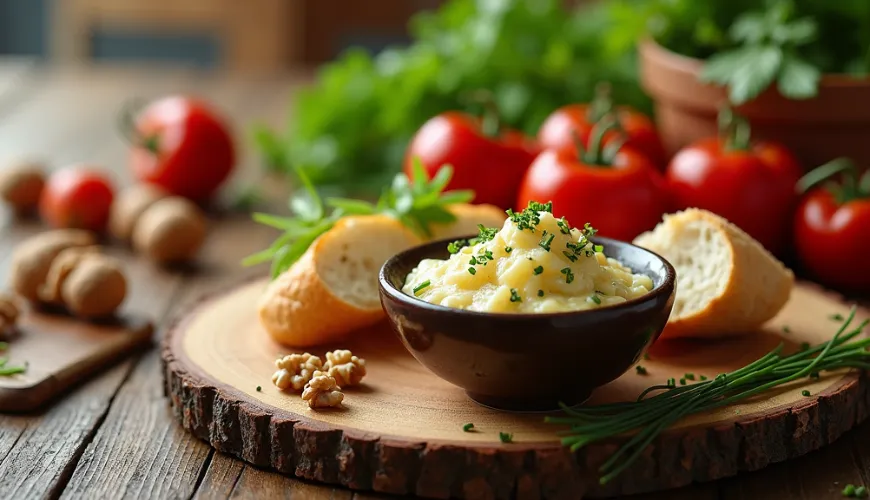
Create a colorful weekly menu for seniors

Weekly Meal Plan for Seniors
As the years go by, not only do the body's needs change, but so does the relationship with food. Many seniors experience changes in taste, a slowing metabolism, and health restrictions that affect food choices. That's why it's important to focus on a quality weekly meal plan for seniors that not only provides the necessary nutrients but also supports vitality, improves digestion, and contributes to overall well-being.
Nutrition in later years should be varied, easily digestible, yet nutritionally rich. Many people associate the term "healthy meal plan" with restrictions or deprivation, but in reality, such a plan can be tasty, colorful, and surprisingly simple.
What to Include in a Senior's Diet?
A healthy diet for seniors should primarily be balanced. Emphasis should be placed on quality proteins, sufficient fiber, healthy fats, and an appropriate intake of carbohydrates. Vitamins and minerals also play an important role – especially calcium, magnesium, vitamin D, and B12, which become harder for the body to absorb with age.
There are increasing recommendations for seniors to regularly include fermented foods in their diet, such as kefir, sauerkraut, or tempeh, which help maintain a healthy gut microbiome. It's also advisable to limit salt and processed foods, which strain the kidneys and increase the risk of high blood pressure. Hydration is another key point – the sense of thirst tends to weaken in older people, so it's important to actively manage fluid intake.
Sensible Eating
Let's consider Mrs. Marie, a 76-year-old retiree from Hradec Králové, who decided to take better care of her health after retirement. She was troubled by joint pain and frequent digestive issues. After consulting with a nutritionist, she began eating five times a day, incorporating more vegetables, legumes, and whole-grain products. The result? In a few months, she felt lighter, less tired, and had more energy for her favorite afternoon gatherings with friends, thanks to stable blood sugar levels.
Curious how such a weekly meal plan for seniors might look in practice? Here's an example of a simple and balanced plan that can be easily adjusted to individual needs and tastes.
Sample Weekly Meal Plan for Seniors
The meal plan is designed as inspiration for seniors without serious health restrictions. For specific diets, it's advisable to consult a doctor or nutrition specialist.
Monday
- Breakfast: Oatmeal with apple, cinnamon, and flaxseed, green tea.
- Snack: Kefir and a few nuts.
- Lunch: Whole-grain pasta salad with tuna, tomato, olives, and baby spinach.
- Snack: Whole-grain bread with cream cheese and chives.
- Dinner: Pumpkin soup and roasted cauliflower.
Tuesday
- Breakfast: Yogurt with chia seeds and blueberries.
- Snack: Slice of cheese and an apple.
- Lunch: Brown rice with sautéed lentils, boiled carrots, and sour cream.
- Snack: Cup of herbal tea and a homemade oatmeal cookie.
- Dinner: Zucchini pancakes with sauerkraut.
Wednesday
- Breakfast: Whole-grain toast with avocado and boiled egg.
- Snack: Banana and a handful of sunflower seeds.
- Lunch: Baked chicken leg, potatoes, sautéed spinach.
- Snack: Yogurt with honey and cinnamon.
- Dinner: Vegetable soup with buckwheat.
Thursday
- Breakfast: Cottage cheese with apricots and oats.
- Snack: Fresh carrot and orange juice.
- Lunch: Millet risotto with peas and leeks.
- Snack: Slice of rye bread with hummus.
- Dinner: Egg omelet with herbs and arugula.
Friday
- Breakfast: Seed bread with cottage cheese and radishes.
- Snack: Homemade apple compote without sugar.
- Lunch: Salmon in butter, mashed potatoes, and steamed broccoli.
- Snack: Cottage cheese dessert with fruit.
- Dinner: Chickpeas in paprika sauce with basmati rice.
Saturday
- Breakfast: Buckwheat porridge with honey and dried plums.
- Snack: Nut and fruit bar without added sugar.
- Lunch: Vegetable goulash with tofu and whole-grain bread.
- Snack: Fresh cucumber and plain yogurt.
- Dinner: Chickpea pancakes filled with spinach.
Sunday
- Breakfast: Whole-grain waffle with homemade sugar-free jam.
- Snack: Almonds and dried apricots.
- Lunch: Turkey with roasted vegetables and millet.
- Snack: Herbal tea and yogurt with honey.
- Dinner: Tomato soup with basil and a piece of cheese.
Try our natural products
This meal plan is designed to be colorful, varied, and most importantly, tasty – which is crucial because food should bring joy. There's no need to stick to the plan strictly – on the contrary, variability helps maintain interest in food and prevent monotony. And if a meal is skipped or there's a craving for something different, it's not a disaster. The key is to listen to your own body.
Quality of Food Plays a Major Role
In later years, the body processes chemical substances found in processed foods less efficiently. Therefore, it's advisable to choose quality and minimally processed foods, ideally organic. The advantage is that today it's possible to buy quality foods online – for example, from an eco-friendly e-shop focusing on natural products and a sustainable approach to production and packaging.
Seasonal and local vegetables, which can easily be added to any dish, can become a valuable ally. Fresh herbs, sprouted legumes, or fermented products not only add flavor to meals but also provide probiotic benefits that support immunity and digestion.
"Healthy eating isn't about diets but about kindness to your own body," says nutrition specialist Michaela Skálová in an interview for the website Vitalia.cz. Kindness to oneself, patience, and a focus on one's own health are perhaps the most important ingredients in any meal plan in later years.
Whether you're planning meals for yourself, cooking for your parents, or just looking for inspiration for small changes, a balanced meal plan for seniors can bring not only better health but also more joy in life. Because good food has the power to connect – with our own body, family, and good mood.





